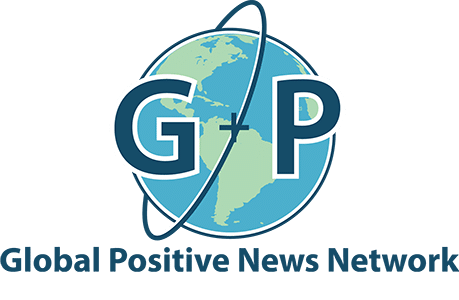At Global Positive News Network, we’re excited to explore the transformative power of innovations in healthcare.
Medical breakthroughs are revolutionizing patient care, from AI-driven diagnostics to personalized treatments. These advancements are not just improving outcomes; they’re fundamentally changing lives.
In this post, we’ll examine how cutting-edge technologies are reshaping the healthcare landscape and offering hope to millions worldwide.
How Breakthrough Technologies Transform Healthcare
AI: The New Frontier in Disease Detection
Artificial Intelligence (AI) revolutionizes disease detection, offering unprecedented accuracy and speed. AI performance was compared with that of six radiologists who read a cancer-enriched test set of 465 cases in a study by McKinney et al. This technology enhances doctors’ capabilities, allows for earlier detection, and potentially saves countless lives.

In lung cancer screening, AI shows a 17% improvement in detection accuracy when interpreting chest x-rays compared to traditional methods (according to a study by Qure.ai). This advancement means patients receive faster diagnoses and start treatment sooner, significantly improving their chances of survival.
CRISPR: Rewriting the Code of Life
CRISPR clinical trials in 2024 offer a comprehensive update on gene-editing clinical trials and the landscape following the first approved therapy. This revolutionary tool allows scientists to make precise changes to DNA, potentially curing diseases once thought untreatable. While still in its early stages, CRISPR shows promising results in treating conditions like sickle cell disease and certain types of blindness.
However, CRISPR technology also raises ethical concerns, particularly regarding its potential use in creating “designer babies.” It’s important to balance scientific progress with ethical considerations to ensure these advancements benefit humanity as a whole.
3D Printing: Customizing Healthcare Solutions
The adoption of 3D printing in healthcare has skyrocketed. The number of U.S. hospitals using this technology increased from just 3 in 2010 to over 110 in 2019 (according to Statista). This rapid growth stems from the technology’s ability to create custom prosthetics, implants, and even replicate human tissue.
One of the most exciting applications of 3D printing is organ transplantation. While still in the research phase, scientists make significant progress in bioprinting organs. This could potentially eliminate organ donation waiting lists and save countless lives.
In the realm of prosthetics, 3D printing already makes a tangible difference. Custom-made prosthetics can now be produced faster and at a fraction of the cost of traditional methods. This means more people (especially in developing countries) can access these life-changing devices.
These breakthrough technologies don’t just improve healthcare; they fundamentally change how we approach medicine. As innovation continues, we move closer to a future where personalized, efficient, and effective healthcare becomes accessible to all. The next frontier in this healthcare revolution lies in telemedicine and remote care, which bring medical expertise directly to patients’ homes.
These inspiring advancements in healthcare technology are transforming lives and offering hope to many who face health challenges.
How Telemedicine Brings Healthcare to Your Home
Telemedicine has revolutionized healthcare delivery, making medical services more accessible than ever before. This technology allows patients to receive care from the comfort of their homes, reduces the need for in-person visits, and improves overall healthcare efficiency.
Virtual Doctor Visits: The New Normal
Virtual doctor visits have surged in popularity, especially since the COVID-19 pandemic. Telehealth utilization has stabilized at levels 38 times higher than before the pandemic. This shift has made healthcare more convenient for patients and helped reduce the spread of infectious diseases.

Many healthcare providers now offer virtual consultations through secure video platforms. Patients can discuss symptoms, receive diagnoses, and even get prescriptions without leaving their homes. This proves particularly beneficial for those with mobility issues, those living in rural areas, or patients needing frequent check-ups.
Remote Monitoring: Keeping Patients Safe
Remote patient monitoring devices have transformed how healthcare providers manage chronic conditions. These devices allow tracking of patients’ vital signs and symptoms in real-time, enable early intervention, and reduce hospital readmissions.
For example, continuous glucose monitors for diabetes patients can alert both the patient and their healthcare provider if blood sugar levels become dangerously high or low. Similarly, wearable ECG monitors can detect irregular heart rhythms, potentially preventing serious cardiac events.
AI-Powered Health Apps: Your Personal Health Assistant
AI-powered health apps and wearables put advanced health monitoring capabilities in the hands of consumers. These tools can track everything from sleep patterns to physical activity, providing users with personalized health insights and recommendations.
Some apps even use AI to analyze photos of skin conditions or listen to coughs, providing preliminary diagnoses and advice on whether to seek professional medical care. In fact, MIT researchers have developed an artificial intelligence model that can detect people who are asymptomatic with Covid-19 through cellphone-recorded coughs. While these tools shouldn’t replace professional medical advice, they can help users make more informed decisions about their health (and potentially save lives in emergency situations).
The rapid advancements in telemedicine and remote care technologies pave the way for a more personalized approach to healthcare. As we move forward, the integration of these technologies with precision medicine promises to revolutionize patient care even further.
How Personalized Medicine Revolutionizes Patient Care
Personalized medicine transforms healthcare by tailoring treatments to individual patients based on their genetic makeup, lifestyle, and environment. This approach promises more effective treatments with fewer side effects, potentially saving lives and reducing healthcare costs.
Genomic Sequencing: The Foundation of Personalized Medicine
Genomic sequencing has become more accessible and affordable, allowing doctors to identify genetic variations that may influence a patient’s response to certain treatments. The cost of sequencing a human genome has dropped significantly since 2001, according to data compiled by the National Human Genome Research Institute. This dramatic reduction has made it possible for more patients to benefit from this technology.

In oncology, genomic sequencing helps identify specific mutations driving a patient’s cancer. This information allows oncologists to choose targeted therapies that are more likely to be effective and less toxic than traditional chemotherapy. A study published in the Journal of Clinical Oncology found that patients who received genomically matched therapies had a 30% higher response rate compared to those who received standard treatments.
Precision Oncology: Targeting Cancer at Its Core
Precision oncology uses genetic information to develop targeted cancer therapies. These treatments attack specific molecular abnormalities in cancer cells while sparing healthy cells, resulting in more effective treatment with fewer side effects.
One success story is the drug Herceptin, which targets the HER2 protein overexpressed in some breast cancers. Adding trastuzumab (Herceptin) to chemotherapy for patients with early-stage, HER2-positive breast cancer reduces recurrence of and mortality from breast cancer by a third, according to research.
Pharmacogenomics: Optimizing Medication Effectiveness
Pharmacogenomics studies how an individual’s genetic makeup affects their response to drugs. This field helps doctors prescribe the right medication at the right dose, reducing adverse reactions and improving treatment efficacy.
The FDA now recommends genetic testing before prescribing certain medications, such as the blood thinner warfarin. Patients with specific genetic variations metabolize warfarin differently, requiring dose adjustments to prevent dangerous bleeding or clotting. A study in the New England Journal of Medicine found that genotype-guided dosing of warfarin reduced the risk of major bleeding events by 27% compared to standard dosing.
Personalized medicine continues to advance, and we expect to see more tailored treatments becoming standard practice across various medical specialties. This approach to healthcare holds great promise for improving patient outcomes and quality of life.
Wrapping Up
Innovations in healthcare transform the medical landscape, reshaping patient care and outcomes worldwide. AI-powered disease detection, CRISPR gene editing, and 3D printing revolutionize diagnostics, treatments, and medical device production. Telemedicine expands healthcare accessibility, complementing these groundbreaking advancements.

These healthcare innovations significantly improve patient outcomes through earlier diagnoses, personalized treatments, and enhanced chronic condition management. Remote monitoring and AI-powered health apps empower patients to take control of their health. The future of healthcare technology promises further integration of AI, advanced genomic medicine, and potentially 3D-printed organs.
At Global Positive News Network, we share these inspiring healthcare developments to foster hope for a healthier future. We invite you to explore more uplifting stories that showcase human ingenuity and compassion at our website. Join us in spreading positivity and hope as we witness the continuous evolution of healthcare innovations.




